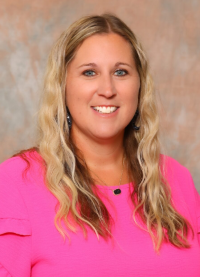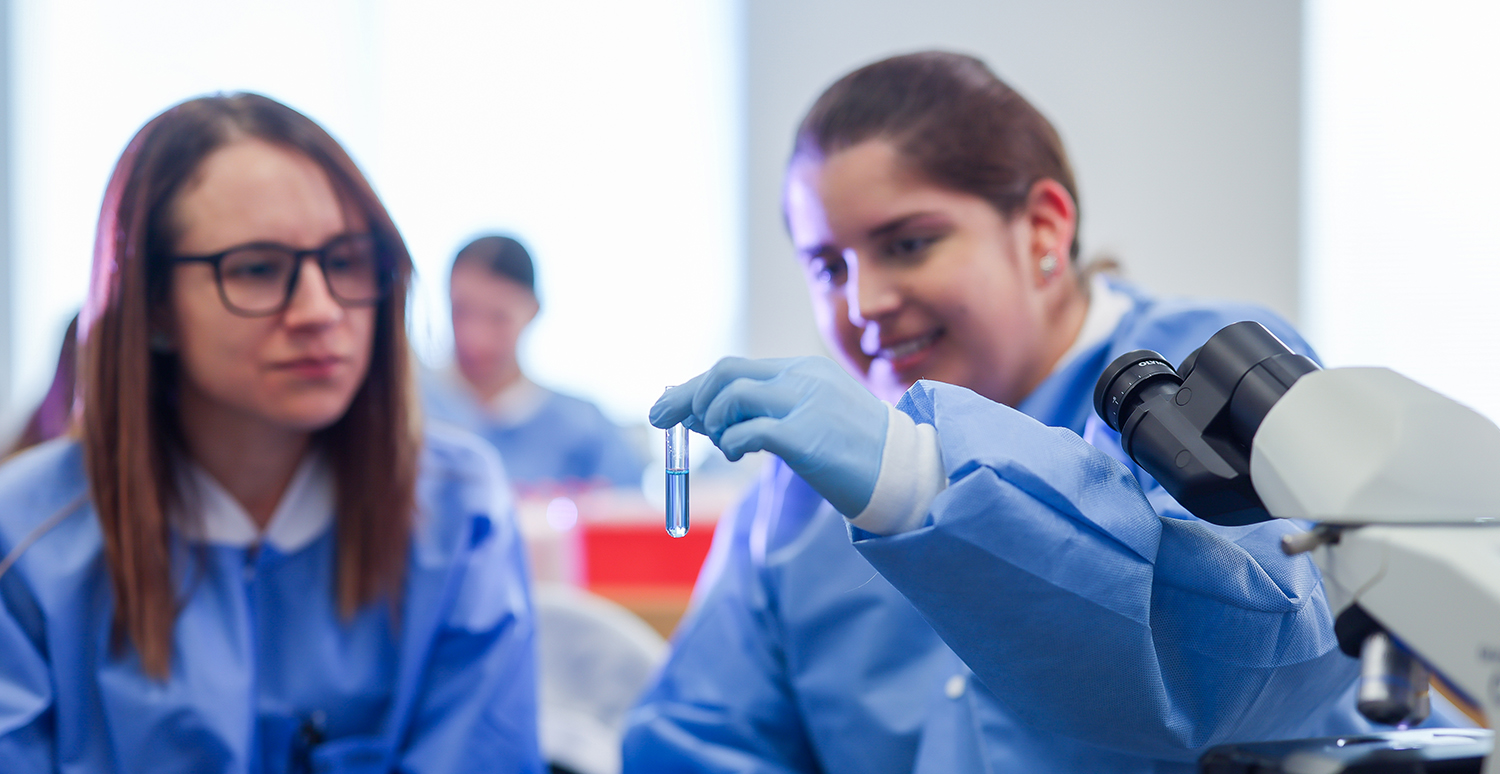Cip Code: 51.1005
Overview
Medical Laboratory Technologists assist physicians and other providers in clinical diagnosis by providing timely and accurate laboratory testing. MLTs work in a clinical laboratory or research center. They analyze blood and body fluids to assess patient status and are the first to see blood disorders such as leukemia and anemia, they prepare blood products for transfusion, discover pathogenic microbes, and perform fertility testing. There are many areas of specialty in this field. One can progress to the MLS, Medical Laboratory Scientist Bachelors level, or even obtain a doctorate in the field, a DCLS.
Program Requirements
Visual acuity to interpret test reactions and use the microscope, motor ability to safely execute job duties, ability to communicate effectively in English and to follow verbal and written instructions; intellectual ability to read and interpret information and make informed decisions; possess emotional health and stability to act as a mature and safe professional in the healthcare setting.
Career Options
The MLT professional may work in a clinical laboratory in a hospital, clinic, research facility, or reference laboratory. After gaining work experience, they may pursue a MLS bachelors degree, or enter clinical laboratory education and become an instructor in an MLT or Phlebotomy Program. Many Bachelors programs are available, at WC we offer the Medical Health Services Management degree for those interested in Hospital Administration.
85% of decisions made in clinical diagnosis depend on the testing results obtained by the Medical Laboratory professional. MLTs are in high demand, and are vital to the healthcare team. This is a field for those who enjoy science, and it has upward mobility as a section supervisor, MLS or DCLS. Job growth is favorable at 5%.
The Medical Laboratory profession is interesting and growing constantly. Participating in professional organizations such as the American Society of Clinical Laboratory Science and the American Society of Clinical Pathology is a way to meet other professionals across the state and nationally. The continuing education offered by these organizations keeps one on the cutting edge of laboratory medicine. A career in the medical lab provides a job that is challenging and directly influences patient care. The salary and benefits help one to support their financial needs.
Related Programs
Transfer Options
One can transfer to Tarleton State University and complete the Medical Laboratory Science Bachelor degree, they also offer an MLS- Masters degree. The Weatherford College Medical and Health Services Management degree is an option to obtain the Bachelor degree. The DCLS, Doctorate in Clinical Laboratory Science degree is offered at the University of Texas Medical Branch and other colleges. Once an MLS bachelors degree is obtained, the ASCP offers specialty certifications in Blood Bank, Microbiology, Chemistry, and Molecular Biology.
Scholarships
- Catholic Charities Scholarship
- Lake Granbury Medical Center Scholarship
- ASCLS Education Scholarship
- Allied Health Scholarship/Tarrant County Medical Society
- ASCP Laboratory Student Scholarship
- Apply for all WC scholarships to which you may qualify.
The WC Financial Aid Department will assist in matching students to scholarships to which they may qualify once they fill out the application.
Accreditation
Pursuing NAACLS Accreditation, National Accrediting Agency for Clinical Laboratory Science
Faculty

Program Director
Brianne joins Weatherford College as MLT Program Director from Mayo Clinic Laboratories where, as an Outreach Solutions Strategist, she worked with laboratory and industry leaders across the country to energize their organization’s laboratory outreach business into a revenue-generating profit center.
Prior to working at Mayo, she was the Director of Corporate Laboratory Services at Wise Health System, responsible for managing laboratory services for more than 20 locations across the system. She is also a Six-Sigma Green Belt and spent eight years as a program director/professor for another local MLT program.
Brianne earned a BS in Medical Technology from Texas Woman’s University, and a MS in Clinical Practice Management from Texas Tech University Health Sciences Center. She is a member of ASCLS, TACLS, and ASCP and has a passion for leadership development, advocacy for laboratory medicine, and creating opportunities for collaboration across healthcare disciplines.
She has been married for 26 years and has twin daughters. Away from work, Brianne is an avid reader, amateur digital photographer, and loves to watch sunsets from a cruise ship balcony.

Instructor / Clinical Coordinator
Ashley Caldwell is an experienced Medical Laboratory Scientist (MLS) with 15 years dedicated to patient care and laboratory management. She earned her bachelor from Tarleton State University, followed by a Master of Science in Healthcare Management.
An alumna of Weatherford College, Ashley began her journey in laboratory medicine by completing her Phlebotomy Certification and Associate Degree in 2009. Throughout her career at Medical City Weatherford, she has served on numerous patient care committees and has been a strong advocate for quality laboratory practices.
She has a true passion for laboratory science and is deeply committed to helping future laboratory professionals grow and succeed in the healthcare field.
When she is not teaching, she enjoys spending time with her husband and their two young sons. Outside of the classroom, she can often be found at the baseball or football field or camping with her family on the weekends.

